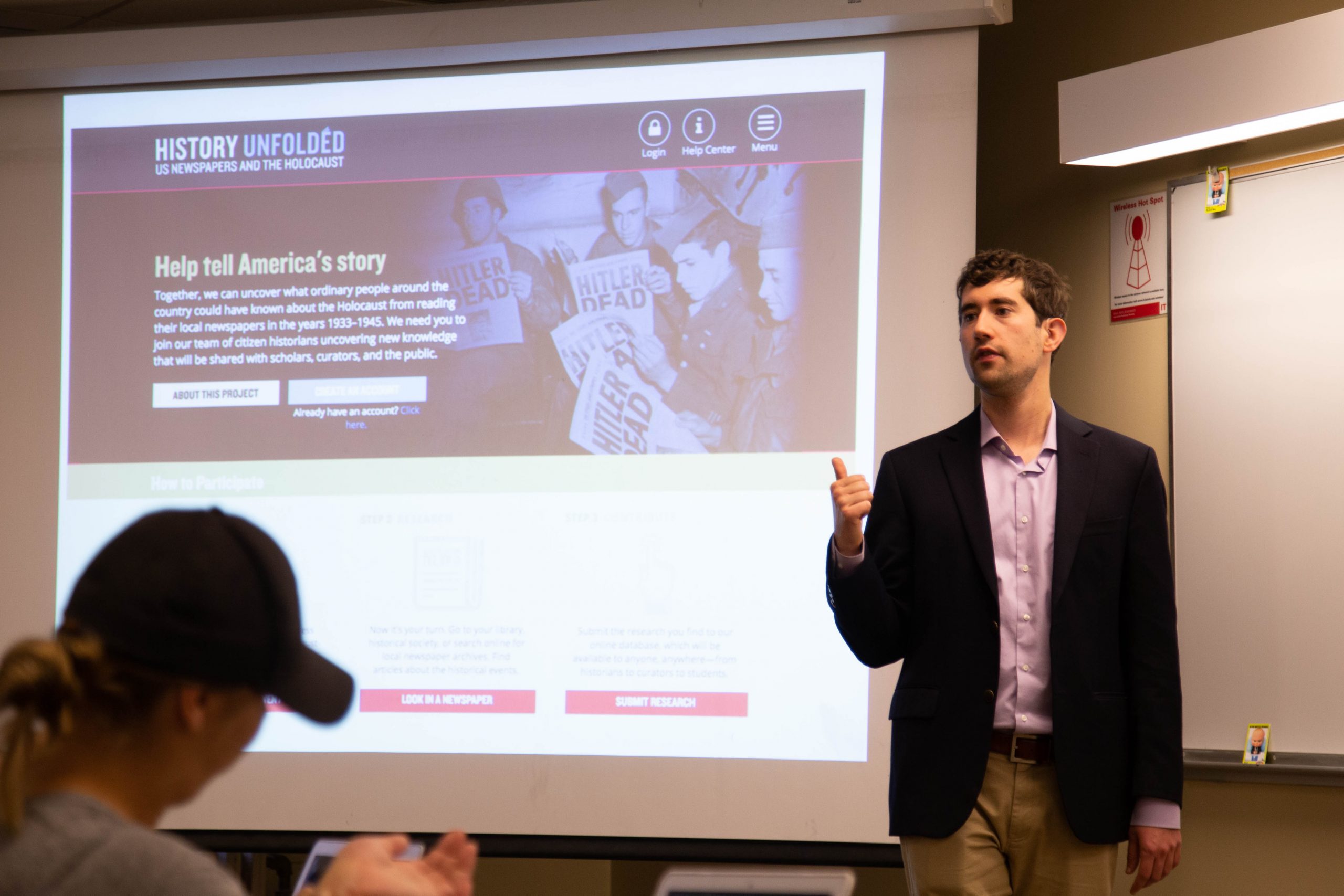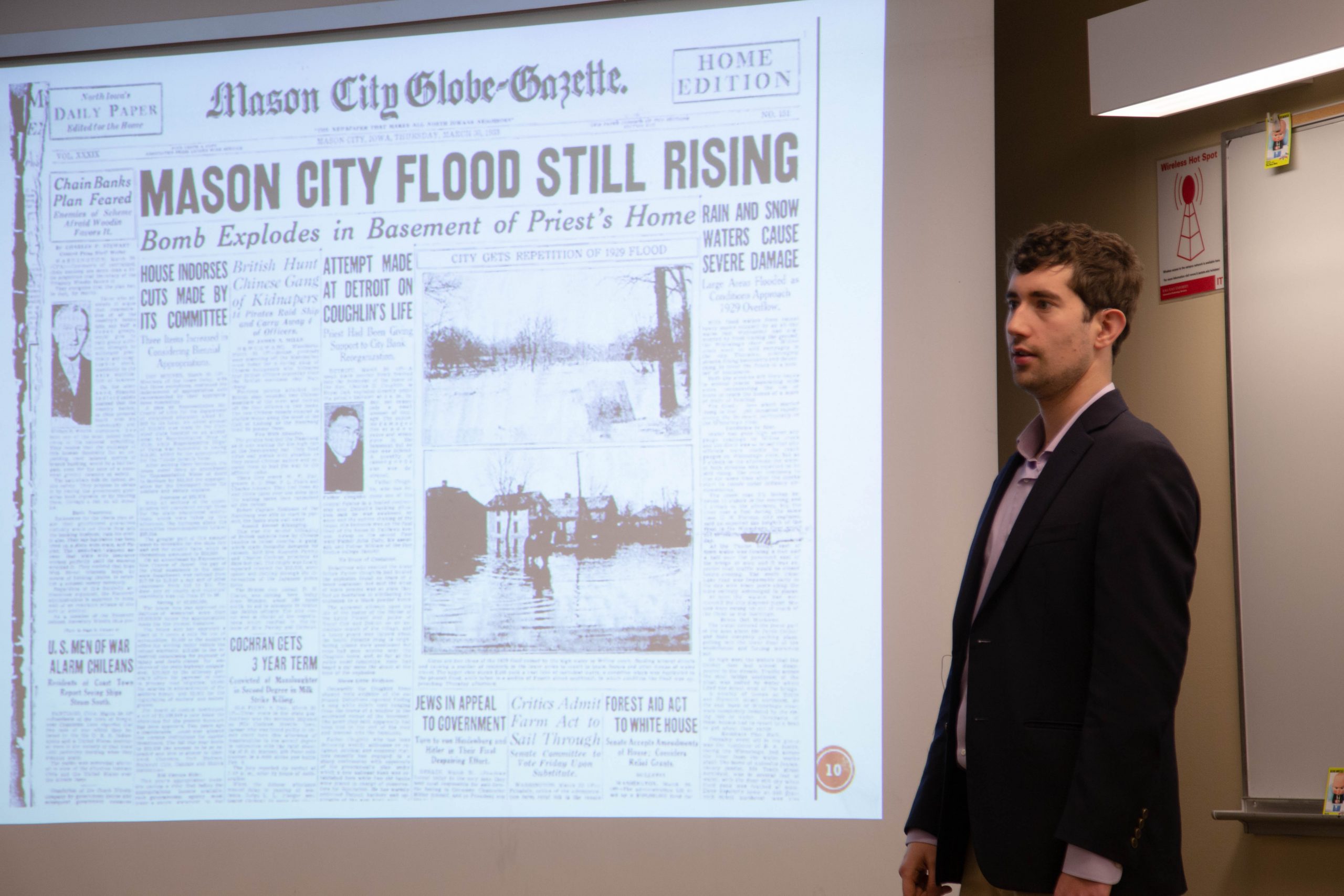Editor’s Note: Eric Schmalz, community manager of the History Unfolded project at the United States Holocaust Memorial Museum, explored Holocaust news coverage in Iowa and other Midwestern states during two lectures on the Iowa State University campus Monday, Nov. 5. The following blog post shares a student’s takeaways from the lecture.

Eric Schmalz’s presentation about the United States’ news narrative during World War II is very timely considering our current events. Schmalz presented images of the covers of newspapers from places like Mason City and Omaha where journalists were reporting with what information they had at the time. These reports tell us a larger story of the implications that journalists and the news have on our government and politics in countries abroad.

We know that newspapers were one of the only sources of news available to people in the past, but it is important to connect this to a historical event to truly understand the consequences. When the mistreatment of Jews became news in early 1933, Americans, including American Jews, were attacked while visiting or vacationing in Germany. They were beaten for not complying with Nazi nationalism. When journalists began covering these stories, they created a negative press that eventually pressures the Nazis to enter diplomatic negotiations with the U.S. State Department.
While these talks did not somehow end the mistreatment of Jews completely, it signified that journalists had the power to bring Nazi Germany to the table. Journalism is important and it is also a powerful influence. The narrative that Americans were absorbing was so concerning to the Nazis that they agreed to enter negotiations. Journalists hold sway over the public opinion and our governing body recognizes this, which is why it is crucial for us to protect our freedom of speech. History has shown that this freedom is influential and important to our democracy, but that it is also key to policing the power of other nation-states. Schmalz’s quick peek at old newspapers reminds us that as the watchdog of society, journalism needs to function independently from systems of power to keep us in check.
Gabi Ampuero is a senior double-majoring in political science and women and gender studies.
